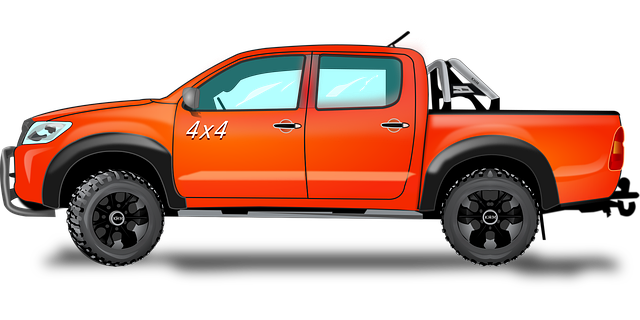Brownville, Texas truck owners enhance their vehicles' performance and handling with coilovers, advanced suspension components. Using Brownsville Texas Truck diagnosis tools, they customize settings for grip, cornering, and ride quality on both paved roads and off-road trails. Coilovers come in hydraulic and mechanical types, with spring rates to match existing setups. Regular inspections and maintenance prevent issues. Installation requires preparation, specialized tools, and knowledge of thread sizes. While expensive, coilovers offer custom styling and improved performance for compatible vehicles.
Coilovers are a key component in vehicle suspension systems, offering precise control over ride height and shock absorption. This article delves into the world of coilovers, guiding you through their function, types (hydraulic vs mechanical, metal vs polymer), common issues diagnosed using Brownsville Texas Truck diagnosis tools, and selection tips for the perfect fit. We’ll also cover installation, maintenance, advantages, and disadvantages, empowering you to make informed decisions for your truck’s suspension upgrade.
- What are Coilovers? – A simple explanation and their basic function in vehicle suspension systems.
- Types of Coilovers: Explore the different categories based on adjustments (hydraulic vs mechanical), materials (metal vs polymer), and applications (performance vs daily driving).
- How to Diagnose Coilover Issues: Using Brownsville Texas Truck diagnosis tools, guide readers through common signs and symptoms of faulty coilovers, such as uneven tire wear, poor handling, or abnormal ride height changes.
- Choosing the Right Coilovers for Your Truck: Factors to consider when selecting coilovers suitable for your specific truck model, including spring rates, thread sizes, and compatibility with existing suspension components.
- Installation and Maintenance Tips: Provide step-by-step instructions on installing coilovers safely and properly, as well as discuss regular maintenance practices to prolong their lifespan.
- Advantages and Disadvantages of Using Coilovers: Weigh the benefits of improved ride quality, better control, and custom styling against potential drawbacks like cost, complexity, and compatibility challenges.
What are Coilovers? – A simple explanation and their basic function in vehicle suspension systems.

Coilovers are advanced suspension components designed to enhance vehicle performance and handling. They serve as a sophisticated alternative to traditional shock absorbers, playing a crucial role in vehicle suspension systems. By controlling spring rates and allowing for precise height adjustments, coilovers offer drivers improved cornering capabilities, better road grip, and a smoother ride.
In Brownsville, Texas, truck owners often turn to advanced diagnosis tools to customize their vehicles with coilovers, fine-tuning them for optimal performance on both paved roads and off-road trails. This customization not only enhances the aesthetic appeal but also allows drivers to tailor their trucks’ suspension to specific driving conditions and personal preferences.
Types of Coilovers: Explore the different categories based on adjustments (hydraulic vs mechanical), materials (metal vs polymer), and applications (performance vs daily driving).

Coilovers come in a variety of types, each catering to different needs and preferences. The primary distinction lies in their adjustments: hydraulic coilovers offer smooth, adjustable ride height while mechanical ones provide more straightforward, physical adjustments. Materials also play a role; metal coilovers are known for their durability and strength, whereas polymer constructions offer lighter weight and sometimes reduced noise levels.
Applications range from performance-focused setups designed for track days and off-road adventures, to daily driving solutions that prioritize comfort and road manners. In Brownsville, Texas, truck owners often turn to these versatile suspension components using specialized tools like diagnosis equipment to fine-tune their vehicles’ handling and aesthetics. Whether you’re after enhanced performance or a more comfortable ride, understanding these categories will help guide your choice in the vast market of coilovers.
How to Diagnose Coilover Issues: Using Brownsville Texas Truck diagnosis tools, guide readers through common signs and symptoms of faulty coilovers, such as uneven tire wear, poor handling, or abnormal ride height changes.

If you suspect your truck’s coilovers may be faulty, it’s crucial to employ Brownsville Texas Truck diagnosis tools to uncover potential issues. Uneven tire wear is a common sign, often revealing themselves as localized wear patterns on one side of the tread. Poor handling and unexpected changes in ride height are also red flags. By utilizing advanced diagnostic software and tools, you can identify these problems early on, preventing further damage and ensuring optimal performance.
Pay close attention to how your truck feels while driving. Any noticeable wobbles or swaying during normal turns could indicate a coilover malfunction. Regular visual inspections of your suspension components, especially the coils themselves, can also help catch issues before they become serious. Keep an eye out for signs of damage, corrosion, or leaks around the coilover assemblies.
Choosing the Right Coilovers for Your Truck: Factors to consider when selecting coilovers suitable for your specific truck model, including spring rates, thread sizes, and compatibility with existing suspension components.

When selecting coilovers for your truck in Brownsville, Texas, several crucial factors come into play. One of the primary considerations is spring rates, which determine how much weight your suspension can handle and influence your vehicle’s ride quality. Ensure that the spring rate matches or complements your truck’s existing setup to achieve optimal performance.
Additionally, thread sizes are essential for proper fitment and compatibility with your vehicle’s factory-fitted components. Misalignment can lead to installation issues and potential damage. Use Brownsville Texas truck diagnosis tools to accurately assess these parameters, ensuring the coilovers you choose seamlessly integrate with your existing suspension system.
Installation and Maintenance Tips: Provide step-by-step instructions on installing coilovers safely and properly, as well as discuss regular maintenance practices to prolong their lifespan.

Installing coilovers requires careful attention and the right tools. Here’s a step-by-step guide:
1. Preparation: Ensure your vehicle is safely secured on jack stands and all wheels are off the ground. Gather all necessary tools, including diagnosis tools specific to Brownsville Texas Truck models. Identify the correct coilover kit for your vehicle using these tools.
2. Remove Original Suspension: Carefully take out the old suspension components, being mindful of any connected brake lines or electrical wiring. Mark the position of each component for easier reassembly.
3. Install Coilovers: Position the coilover assembly in place, ensuring it aligns correctly with your vehicle’s frame. Use the provided hardware and torque specifications from the manufacturer’s instructions to securely fasten the coilovers.
4. Reattach Suspension Components: Carefully reconnect all suspension components, including control arms, struts, and brakes lines or wiring you removed. Double-check for any leaks and tighten any loose connections.
Regular maintenance is crucial for prolonging coilover lifespan. This includes regular cleaning and inspection of the suspension components, checking for signs of wear or damage, and topping up any necessary lubricants according to the manufacturer’s recommendations.
Advantages and Disadvantages of Using Coilovers: Weigh the benefits of improved ride quality, better control, and custom styling against potential drawbacks like cost, complexity, and compatibility challenges.

Using coilovers offers several advantages for vehicle owners in Brownsville Texas. One of the key benefits is improved ride quality; these mechanical components allow for precise control over suspension settings, resulting in a smoother and more comfortable drive, especially on rough roads. Coilovers also offer better handling and control, enabling drivers to navigate corners with greater precision and confidence. Moreover, they provide an opportunity for custom styling, as many models come in various finishes and sizes that align with individual preferences.
However, incorporating coilovers is not without its potential drawbacks. One significant consideration is the cost; these components can be relatively expensive compared to stock suspensions, especially performance-oriented models. The complexity of installation also deserves mention; proper fitting requires specialized tools and knowledge, which may limit accessibility for some car owners. Additionally, compatibility challenges exist, as not all vehicles are designed with coilovers in mind, requiring careful selection based on make, model, and year.
Coilovers offer a range of benefits for truck owners in Brownsville, Texas, from improved ride quality and handling to custom styling. By understanding different types, selecting the right coilovers for your vehicle, and following proper installation and maintenance practices, you can enhance your truck’s performance and enjoyment. Remember that while coilovers have advantages, they also come with costs and potential challenges, so make informed decisions using the right Brownsville Texas Truck diagnosis tools.



